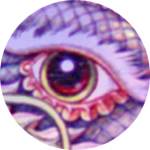Acupuncture may ease the itch of eczema
Amy Norton
Tue Dec 22, 2009 1:22pm EST
NEW YORK (Reuters Health) - An acupuncture session may bring some itch relief to people with the allergic skin condition known as atopic eczema, a preliminary study suggests.
Health
Eczema is a general term for conditions marked by inflammation and dry, red, itchy patches on the skin. The most common form, atopic eczema, is seen in people with a predisposition to allergies, like hay fever or asthma.
In the new study, German researchers looked at the short-term effects of acupuncture on skin inflammation and itching in 30 people with atopic eczema.
They found that the therapy, when done minutes after patients' skin was exposed to an allergen (either pollen or dust mites), appeared to soothe subjective feelings of itchiness.
In addition, when patients were exposed to the allergen for a second time shortly after the acupuncture session, they tended to have a less-severe skin reaction, the researchers report in the journal Allergy.
The findings show that in this "experimental setting," acupuncture seems to ease the itch of atopic eczema, lead researcher Dr. Florian Pfab, of the Technical University of Munich, told Reuters Health in an email.
The study does not, however, answer the question of whether acupuncture as practiced in the real world would have similar benefits.
For the study, Pfab and his colleagues looked at all 30 patients under three different test conditions.
In one, patients had their skin exposed to either pollen or dust-mite allergens, then received true, or "point-specific," acupuncture -- in which needles were placed in traditional acupuncture points that, according to Chinese medicine, are related to itchy skin.
In another condition, the allergen exposure was followed by "placebo-point" acupuncture, where the needles were inserted into skin areas not used in traditional Chinese medicine. In the third condition, patients received no treatment.
Overall, Pfab's team found, patients' itchiness ratings were lower after they received true acupuncture, compared with both no treatment and placebo acupuncture.
Then, when the researchers exposed patients' skin to the allergens a second time, skin flare-ups tended to be less-severe following the point-specific acupuncture. As for itchiness, however, both the true and placebo therapies had similar benefits compared with no treatment.
Acupuncture has been used for more than 2,000 years in Chinese medicine to treat a wide variety of ailments. According to traditional medicine, specific acupuncture points on the skin are connected to internal pathways that conduct energy, or qi ("chee"), and stimulating these points with a fine needle promotes the healthy flow of qi.
Modern research has suggested that acupuncture may help ease pain by altering signals among nerve cells or affecting the release of various chemicals of the central nervous system.
Pfab explained that pain and itchiness have similarities in their underlying mechanisms, so acupuncture's effects on pain mechanisms may also account for the benefits seen in this study.
The researcher pointed out, however, that more research is needed to see whether and why acupuncture might be helpful for people with eczema.
SOURCE: Allergy, online December 11, 2009.




 Reply With Quote
Reply With Quote









